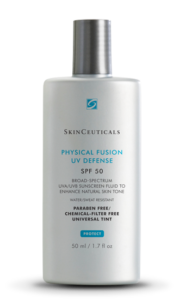 As a female plastic surgeon practicing in the warm, sunny Dallas area, I get this question a lot from my patients: “Is there a specific sunscreen that I should be using on a daily basis?”…The answer: of course! But first things first, I’m just glad that most people recognize the importance of using sunscreen. So since we all agree on its importance, I figure my job here is to educate y’all (and yes, I tend to slip back into my southern roots at times!) on what to look for in a good sunscreen. With the hundreds and thousands of products out there, how the heck are you supposed to choose just one? I think this topic is especially fitting since I’m sitting outside by the pool in the middle of February as I write this up…and you can bet your bottom dollar that I’m wearing my sunscreen!
As a female plastic surgeon practicing in the warm, sunny Dallas area, I get this question a lot from my patients: “Is there a specific sunscreen that I should be using on a daily basis?”…The answer: of course! But first things first, I’m just glad that most people recognize the importance of using sunscreen. So since we all agree on its importance, I figure my job here is to educate y’all (and yes, I tend to slip back into my southern roots at times!) on what to look for in a good sunscreen. With the hundreds and thousands of products out there, how the heck are you supposed to choose just one? I think this topic is especially fitting since I’m sitting outside by the pool in the middle of February as I write this up…and you can bet your bottom dollar that I’m wearing my sunscreen!
Having trained as a physician-scientist from Duke University, I can’t help but to bring in a little background information about skin and sun damage. As most of you know, your skin is the largest organ in the body. It serves as a protective barrier (think of it as the first line of defense!) and its health and appearance is determined by both external, environmental factors as well as its internal composition. The sun is your largest environmental exposure and while it helps sustain life, it also emits UVA and UVB rays that penetrate your skin and cause damage to cells and DNA. On the surface, this damage usually appears as fine lines, wrinkles, skin discoloration and/or skin laxity. But what’s more disturbing is that by damaging and/or altering your cells and DNA, it can also lead to skin cancer.
Sunscreens typically contain physical UV-reflecting ingredients, chemical UV-absorbing ingredients, or a combination of both. Physical reflecting ingredients, such as zinc oxide and titanium dioxide, work by scattering or deflecting UV light. The UV-absorbing chemicals work by absorbing high-energy ultraviolet rays and releasing the energy as low-energy rays. However, some chemicals may actually generate free radicals and this can cause further damage and skin irritation. Physical sunscreens are generally thought to be better tolerated by most skin types.
Most people think that the best sunscreens have a high SPF number. SPF, or sun protection factor, measures the amount of time one is protected from UVB rays that cause sunburn. Remember, however, that the sun also emits UVA rays that do not cause reddening or pain. Therefore, a good sunscreen should be “broad-spectrum” to provide coverage from the entire spectrum of both UVA and UVB radiation.
So…what qualities should you look for in a good, broad-spectrum sunscreen? Since I have sensitive skin, I prefer physical sunscreens. Ideally, the sunscreen should be thin and lightweight so it doesn’t leave a white, pasty tint. All sunscreens typically have to be reapplied but if it’s water-resistant, it will last longer, especially if you are living in a hot, sweaty environment like Dallas. And because no one likes to block their skin pores on purpose, look for non-comedogenic on the label.
 Ok, so if you’re sitting there fretting about having to find a good, lightweight, broad-spectrum, water-resistant, and non-comedogenic physical sunscreen, fret no more! I’ve done the research and my go to sunscreen is SkinCeuticals Physical Fusion UV Defense SPF 50: 100% physical, broad-spectrum, water/sweat resistant, non-comedogenic, paraben and chemical-filter free, and lightweight…and the coolest part??? It has a sheer, natural tint that blends in with ALL skin tones so there is no residual white, pasty skin streaking. This lets you apply and blend your makeup effortlessly. For those who prefer a transparent sunscreen (and yes, I’m talking to all you guys out there!), Skinceuticals Sheer Physical UV Defense SPF 50 does the trick! Remember, the sun doesn’t discriminate so both guys and gals need to protect themselves. And to make it even easier for y’all, our office is now carrying both products. So what are you waiting for? Take a step in the right direction and commit yourself to protecting your skin. Your skin will thank-you!!!
Ok, so if you’re sitting there fretting about having to find a good, lightweight, broad-spectrum, water-resistant, and non-comedogenic physical sunscreen, fret no more! I’ve done the research and my go to sunscreen is SkinCeuticals Physical Fusion UV Defense SPF 50: 100% physical, broad-spectrum, water/sweat resistant, non-comedogenic, paraben and chemical-filter free, and lightweight…and the coolest part??? It has a sheer, natural tint that blends in with ALL skin tones so there is no residual white, pasty skin streaking. This lets you apply and blend your makeup effortlessly. For those who prefer a transparent sunscreen (and yes, I’m talking to all you guys out there!), Skinceuticals Sheer Physical UV Defense SPF 50 does the trick! Remember, the sun doesn’t discriminate so both guys and gals need to protect themselves. And to make it even easier for y’all, our office is now carrying both products. So what are you waiting for? Take a step in the right direction and commit yourself to protecting your skin. Your skin will thank-you!!!
Cheers to good health,

